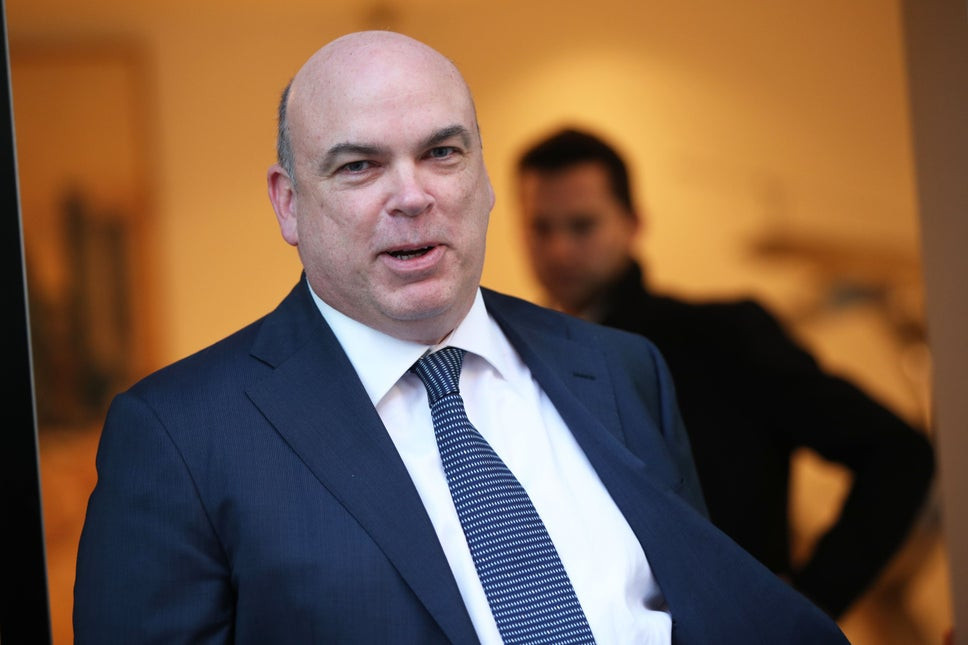Former Green Bay Packers quarterback Brett Favre said he's been diagnosed with Parkinson's, a stunning disclosure made to Congress on Tuesday while testifying about his potential misuse of taxpayer money. Favre, appearing before the House Ways and Means Committee, has been accused of improperly using political connections to redirect public money to his alma mater and his own pocket.
"Sadly, I also lost an investment in a company that I believed was developing a breakthrough concussion drug I thought would help others, and I’m sure you’ll understand why it’s too late for me because I’ve recently been diagnosed with Parkinson’s," Favre told lawmakers.
"This is also a cause dear to my heart. Recently, the doctor, running the company pleaded guilty to taking (public) money for his own use."
Parkinson's is a brain disorder that causes unintended or uncontrollable movements. Symptoms, such as shaking and difficulty with balance and coordination, gradually worsen over time and often progress to difficulty walking and talking.
A history of playing football was associated with a higher risk of a self-reported diagnosis of Parkinson’s or parkinsonism, according to a study published last year in the journal JAMA Network Open.
The study, based on surveys of people who’d played a range of organized sports, found that former football players who had longer playing history and higher level of competition were more likely to have a form of the condition.
The Hall of Fame QB improperly received program money for speaking engagements that he never made, according to a state auditor. Favre was also accused of using his ties for former Gov. Phil Bryant to lobby for TANF funds to go to a new volleyball facility at his alma mater, the University of Southern Mississippi, where his daughter was a player.
Favre has not been criminally charged, but he is repaying some of the money.
In his testimony on Tuesday, Favre insisted he did nothing wrong and only later found that the money sent to him for speaking engagements and earmarked for volleyball came from taxpayers.
U.S. Rep. Linda Sanchez, D-Calif., wasn't impressed with Favre's presentation. She called for "my Republican colleagues" to join "Democrats in passing meaningful TANF reforms so wealthy individuals like Brett Favre can no longer take advantage of our most vulnerable."
Favre's testimony about the welfare scandal was overshadowed by his shocking revelation about Parkinson's. The diagnosis was particularly concerning given Favre's long and violent career in the NFL. Favre himself has said he believes he suffered "hundreds, maybe thousands" of concussions.
In 2022, Favre, during an appearance on the Bubba Army Radio show, said that he believed he suffered a concussion on his final play in the NFL. While a concussion may not lead to Parkinson's, it is one of the risk factors of the debilitating disease, and Favre's remarks suggest he may have sustained many over the course of his career.
While Favre continues to maintain his innocence in the Mississippi welfare scandal, his Parkinson's diagnosis and comments about his past concussions are a reminder of the long-term consequences that can result from a career in professional football. It is a reality that should be considered by players and league officials alike.
Favre is not the only former NFL player to be diagnosed with a debilitating brain disorder. Former Chicago Bears linebacker Mike Singletary, who was known for his aggressive playstyle, was diagnosed with dementia last year at age 65. The number of former NFL players diagnosed with brain disorders continues to rise, and there is growing concern about the long-term impact of repeated head injuries.
Favre's case is a reminder that the NFL needs to take a more proactive approach to protecting its players from head injuries and that more research is needed to better understand the long-term consequences of these injuries. It is a reminder that the game of football can take a toll, even after the final whistle blows.

















